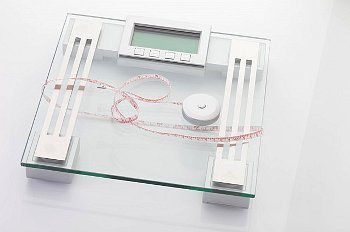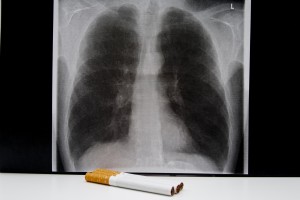How To Determine Your Ideal Weight
How can you determine your ideal weight? Just how much fat and how many calories should you consume to reach and maintain a healthy weight?
One answer won't work for everybody. So you need to do some figuring to determine how much fat and how many calories you can have. First, you need to determine your ideal weight. Here is a simple method to determine what that weight should be:
For Women: The ideal weight for a woman who is exactly 5 feet tall is 100 pounds. For every additional inch above 5 feet, add five pounds. If you are shorter than 5 feet tall, subtract five pounds for every inch you measure below 5 feet.
Next, determine whether you have a small, medium or large frame. Using a measuring tape, measure your wrist. If your wrist measures exactly 6 inches, you have a medium frame and the weight number you calculated above, does not need to be adjusted. If your wrist measures less than 6 inches, subtract 10 percent from your ideal weight. If your wrist measures more than 6 inches, add 10 percent to your ideal weight.
For Men: The ideal weight for a man who is exactly 5 feet tall is 106 pounds. For every additional inch above 5 feet, add 6 pounds. To determine whether you have a small, medium or large frame, measure your wrist. If your wrist measures exactly 7 inches, you have a medium frame and you do not need to adjust your ideal weight. If your wrist is smaller than 7 inches, you have a small frame and should subtract 10 percent from your ideal weight. If your wrist is larger than 7 inches, you have a small frame and should add 10 percent to your ideal weight.
Okay, now that you know what your ideal body weight should be, let's take a look at how many calories your body needs each day. Before we do this however, you need to take into account your level of activity.
If you are totally inactive and usually get no exercise, multiply your adjusted ideal weight by 11. If you get regular exercise two or three times a week, multiply your adjusted ideal weight by 13. If you get regular exercise four to five times a week, multiple your adjusted ideal weight by 15. And finally, if you get regular exercise six to seven times a week, multiply your adjusted ideal weight by 18.
Now that you know your ideal weight and how many calories you need each day you can easily figure out how much fat you can eat. Most nutritionists recommend that you limit daily intake of fat to 30 percent of your total calories. However, if you want to lose weight or have a history of heart disease or cancer, limit your daily fat intake to 20 percent of your total calories.
Let's take a look at a real life example. If Jane is a 5 foot 4 inch woman with a medium frame her ideal weight is 120 pounds. Jane is trying to lose weight so she needs to keep her fat calories down to about 20 percent.
Jane is exercising two to three times a week so we can multiply her ideal weight by the number that matches her activity level, which is 13. Now we know that Jane needs 1,560 calories each day.
If we take 20 percent of 1,560 (1,560 multiplied by .20) we get 312. Next, translate fat calories into fat grams (this will make it easier for you to read food labels). One gram of fat equals 9 calories. So if we divide 312 by 9 we know that Jane can eat about 35 grams of fat per day.
Because Jane is over weight and trying to lose, her ideal weight and current weight do not match up. Jane needs to adjust her total calorie consumption. In order for her to lose one pound, she needs to eliminate 3,500 calories.
One simple solution is to lose a pound a week. That's a worthy and healthy goal. It's important to remember that your weight should be lost gradually. It's generally not recommended to try to lose more than two pounds in a week. Attempting to do so may cause health risks, and on top of this you're unlikely to be successful.
-
Losing Weight and Heightening Self-Esteem
Do you suffer from being an obese or overweight? Well, you抮e not
-
Weight Loss Methods - Vinegar Weight Loss
One of the most natural and probably one the oldest weight loss method
-
5 Ways to Get Slim on Autopilot
Getty Images Just tell me what
-
Melt Your Body Fat With These Natural Juices!
If you have some flabby
-
XTREME FAT LOSS DIET - DISCOVER HOW TO BREAK THE CYCLE OF FAT LOSS
You must have heard million times that a diet should abide of food
-
Dieting Myths That You Should Know
Do you feel that you are a bit of overweight? Are you trying to lose s
- DON'T MISS
- Abolish The Intolerable Effects Of Dieting
- Tips On How To Lose 20 Pounds In 30 Days
- Low Carb and Low Fat Diets...A Scam?!
- Tips On Finding The Best Weight Loss Plans
- Tummy Fat
- Be Your Healthiest With These Suggestions About Fitness
- Why Most Individuals Fail At Dieting
- HCG Drops - How They Can Help You Eliminate the Right Kind of Fat
- Gaining The Weight Back After You Lose It? Secrets To Stop It
- a few Time-Tested Tactics To Shed Belly Fat Quick And Get Flat Shredded Abs




